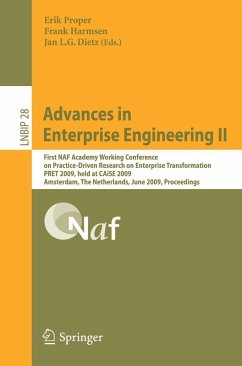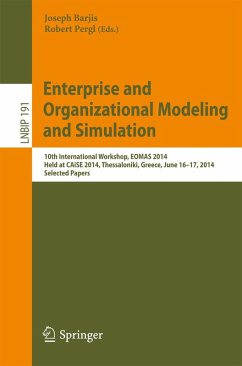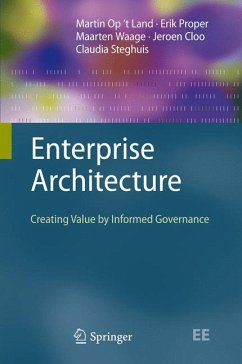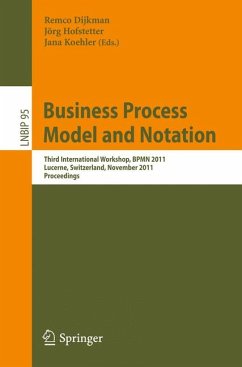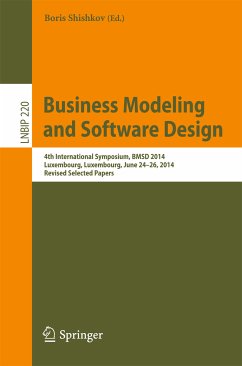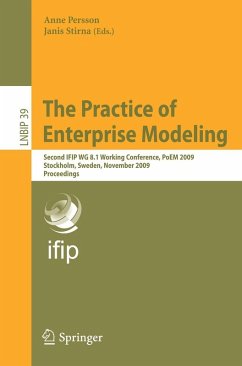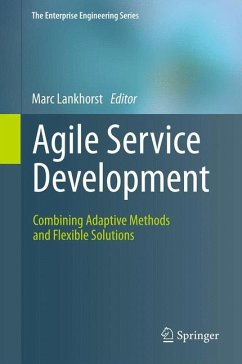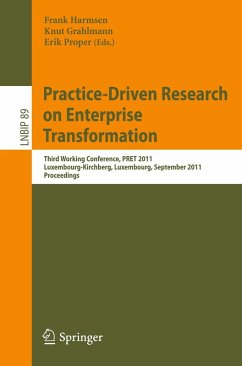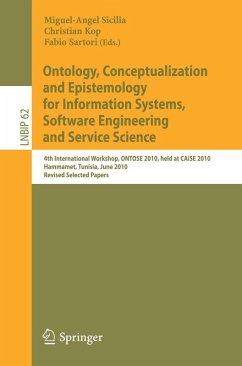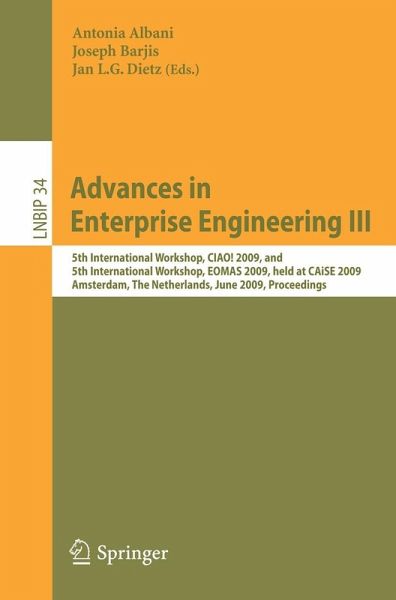
Advances in Enterprise Engineering III (eBook, PDF)
5th International Workshop, CIAO! 2009, and 5th International Workshop, EOMAS 2009, held at CAiSE 2009, Amsterdam, The Netherlands, June 8-9, 2009, Proceedings
Redaktion: Albani, Antonia; Dietz, Jan
Versandkostenfrei!
Sofort per Download lieferbar
40,95 €
inkl. MwSt.
Weitere Ausgaben:

PAYBACK Punkte
20 °P sammeln!
In the era of continuous changes in internal organizationalsettings and external business environments - such as new regulations and business opportunities - modern enterprises are subject to extensive research and study. For the understanding, design, and engineering of modern enterprises and theircomplexbusiness processes,thedisciplineofenterpriseengineeringrequires sound engineering principles and systematic approaches based on rigorous th- ries. Along with that, a paradigm shift seems to be needed for addressing these issues adequately. The main paradigm shift is the consideration of an en...
In the era of continuous changes in internal organizationalsettings and external business environments - such as new regulations and business opportunities - modern enterprises are subject to extensive research and study. For the understanding, design, and engineering of modern enterprises and theircomplexbusiness processes,thedisciplineofenterpriseengineeringrequires sound engineering principles and systematic approaches based on rigorous th- ries. Along with that, a paradigm shift seems to be needed for addressing these issues adequately. The main paradigm shift is the consideration of an enterprise and its business processes as a social system. In its social setting, an enterprise and its business processes represent actors with certain authorities and assigned roles, who assume certain responsibilities in order to provide a service to its environment. Second to that, a paradigm shift is to look at an enterprise as an artifact purposefully designed for a certain mission and goal. The need for this paradigm shift, along with the complexity and agility of modern enterprises, gives inspiration for the emerging discipline of enterprise engineering that requires development of new theories and methodologies. To this end, the prominent methods and tools of modeling and simulation play a signi?cant role. Both (conceptual) modeling and simulation are widely used for understanding, analyzing, and engineering an enterprise (its organization and business processes).
Dieser Download kann aus rechtlichen Gründen nur mit Rechnungsadresse in A, B, BG, CY, CZ, D, DK, EW, E, FIN, F, GR, HR, H, IRL, I, LT, L, LR, M, NL, PL, P, R, S, SLO, SK ausgeliefert werden.




